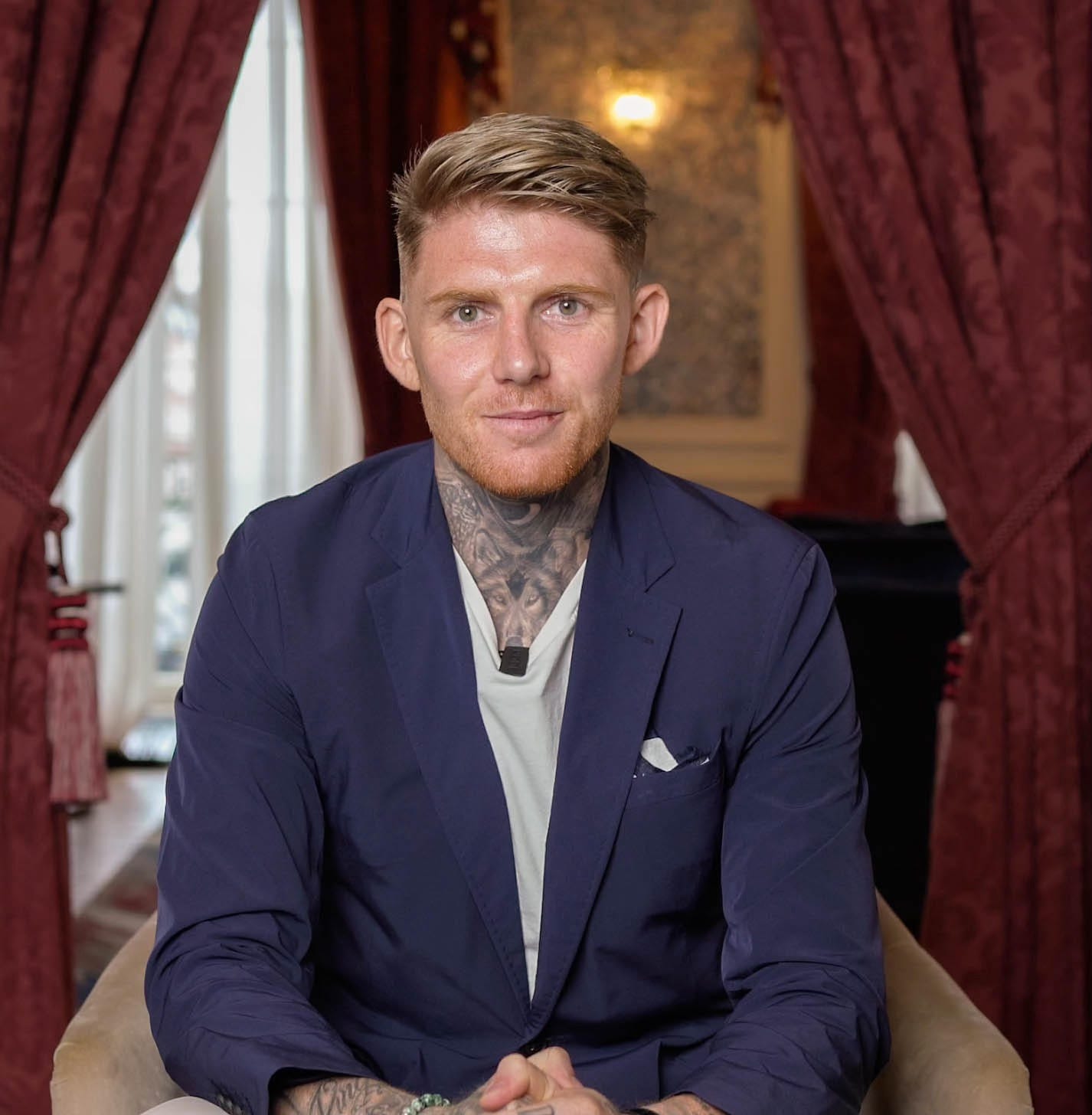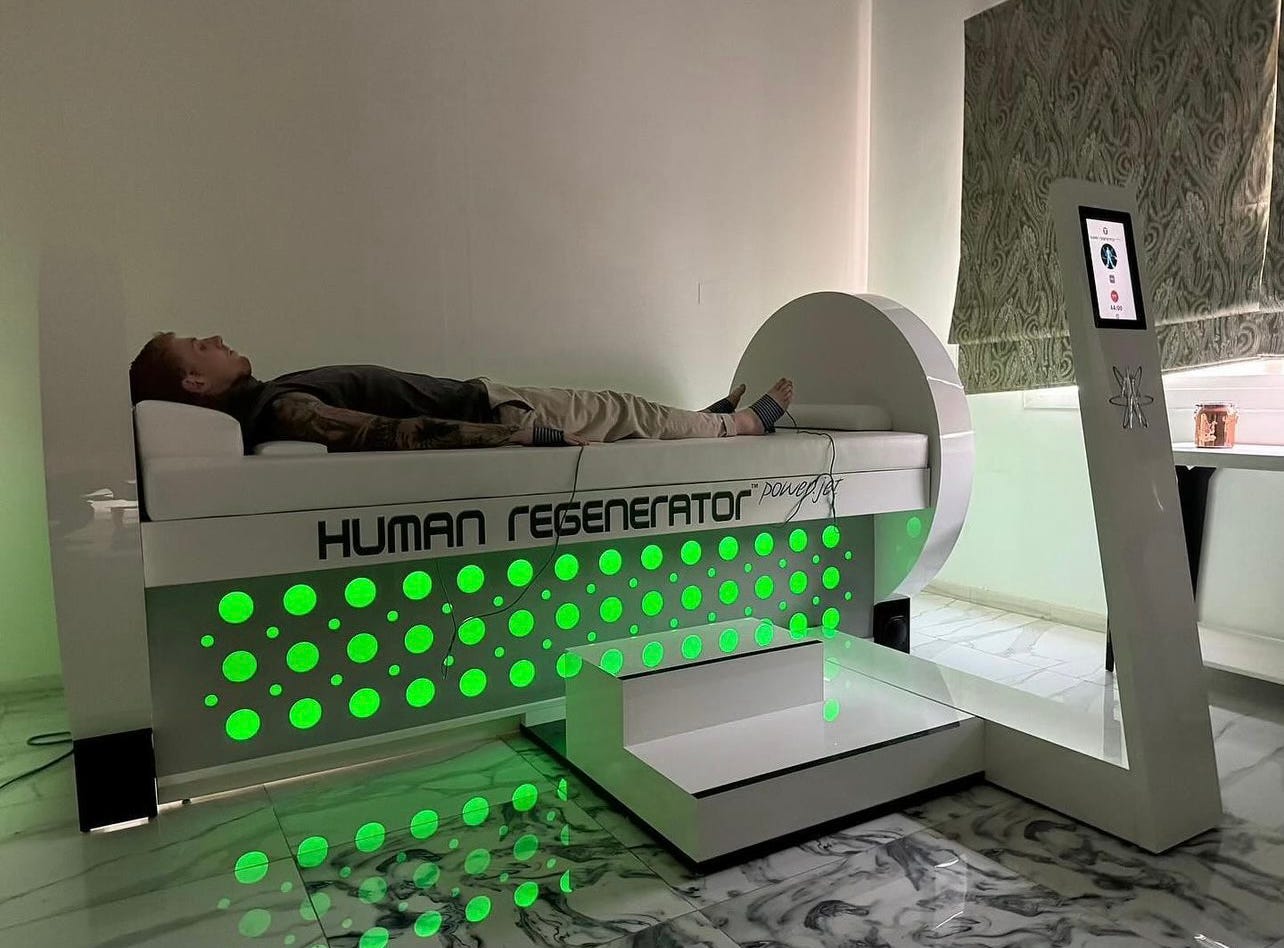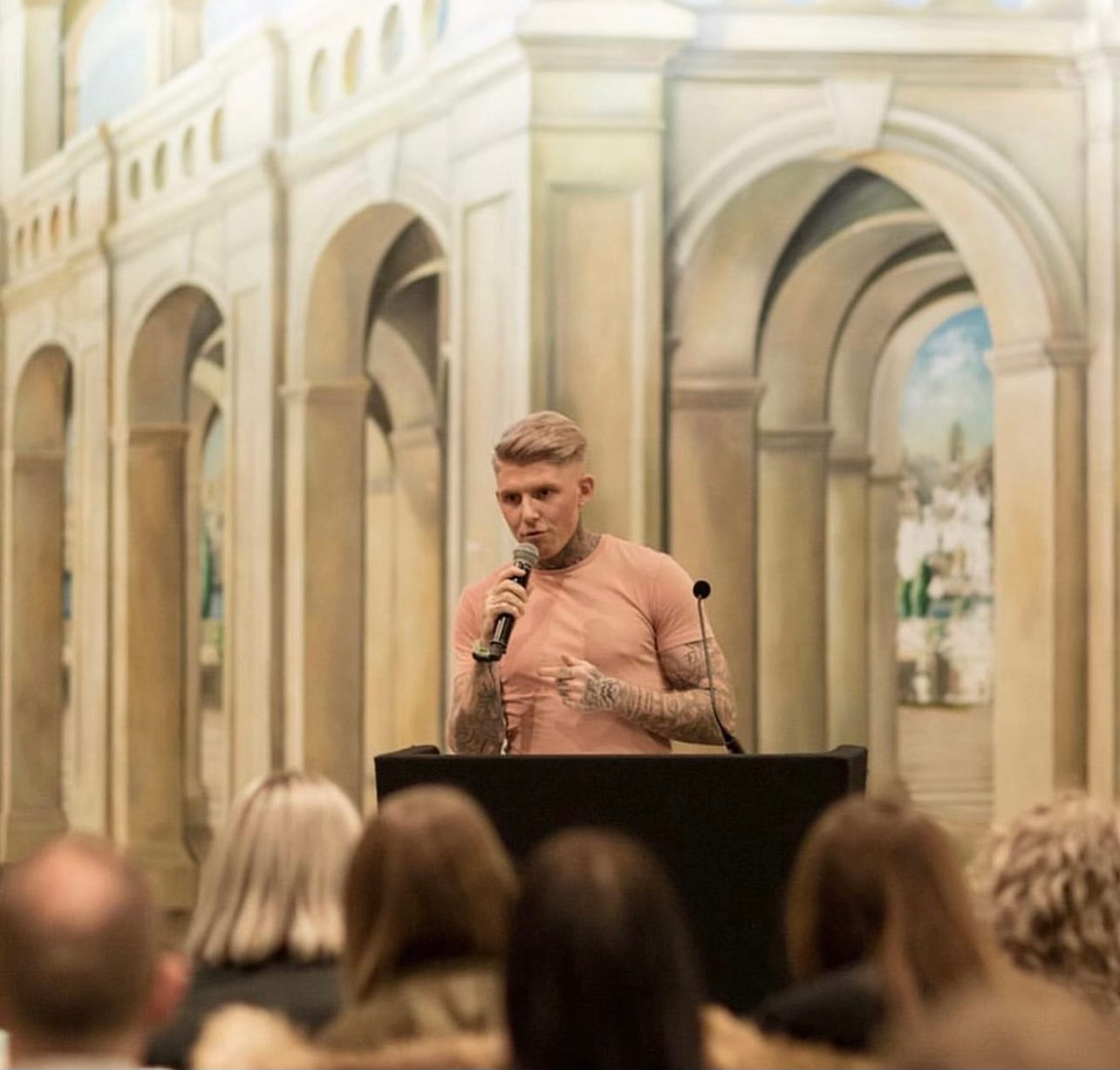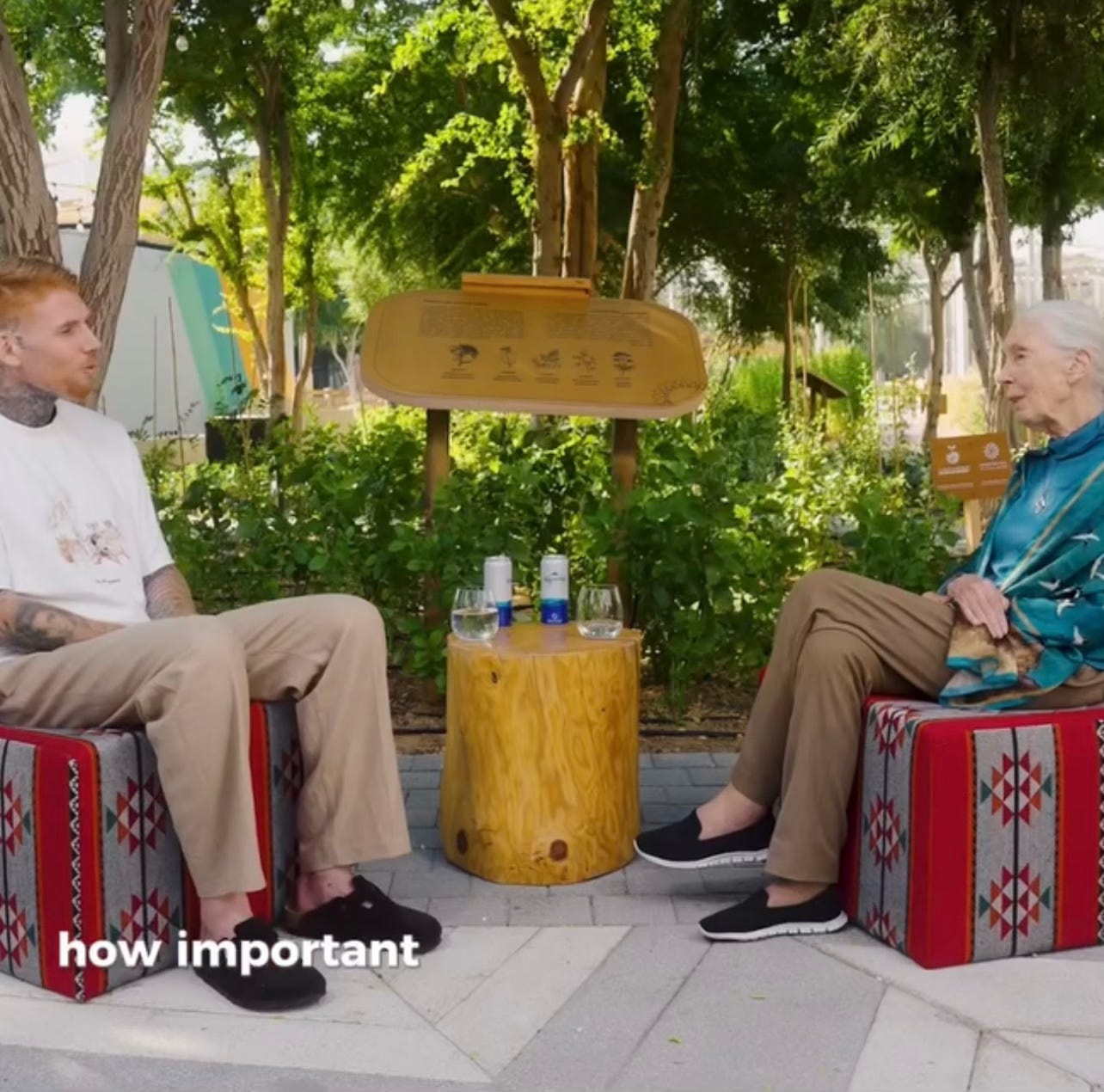Can Loui Blake’s Vision for Wellness Transform the Future of UK Hospitality?
An advocate for sustainable lifestyle, Blake is not only a businessman but also an angel investor, supporting ventures like Dirtea, bridging the gap between wellbeing and daily choices.
LOUI BLAKEBlake’s businesses aim to appeal not only to vegan consumers but to mainstream audiences as well. Above all the accolades, he is a friend who I take tremendous inspiration from when it comes to my own wellness journey or business building. We sat down to discuss concepts and trends that are reshaping wellness hospitality in the UK and beyond.

Adiona: Your ventures have become known for creating immersive spaces that are more than just dining venues. What role do you think a restaurant’s ambiance and sense of place play in how people experience wellness?
At its core, I believe wellness is connection; to self, to others, to our environment. If our goal is to help people deepen this connection, we have to take a holistic approach, which means paying careful consideration on to how all of the senses are engaged. We know now, scientifically, that the state we are in when we eat affects our digestion and nutrient absorption, so we really try to think about how to help people drop into the present moment experience.
We love to bring nature inside and put the foods we produce ourselves in public view. Beyond this, it helps if we can understand and optimise spaces to meet the intension around our guests’ visit; if you’re here to work, can we support you with a quiet space and a nootropic brew to boost brain function? If you’re arriving at our run club, can we offer you an electrolyte blend and space to continue your conversation? This is as much about the space as what’s happening within it.
Adiona: Wellness industry in the UK has seen radical shifts, from the rise of farm to table to an intense focus on operations sustainability. As someone leading multiple ventures, what would you say are the biggest challenges facing entrepreneurs today who are genuinely looking to grow legacy businesses?
If you’re guided by the latest trend, you’re changing your business every 5 minutes and it feels inauthentic. If you’re guided by your values, you adopt only the things that are true and over time these values become more transparent to guests in what you do. When I opened my first restaurant in 2017 to now, my core values haven’t changed, but the way we execute on those values has. The challenge for entrepreneurs is to retain the culture that operates from these guiding principles as you scale. In any market where you’re challenging long-held beliefs or introducing new ideas, it’s necessary to be transparent as to why and what it means.
Adiona: Your locations in Dubai are striking, with high visual appeal, yet the operational demands of running experiential businesses are intense with sometimes razor thin margins. How do you balance the focus on creating an aesthetic space while ensuring operational efficiency and profitability?
We have to acknowledge that a core driver behind why people visit spaces such as ours is for a content opportunity they can share. As a result, more people see our space and have the opportunity to visit, which helps us achieve our purpose. The space has to be functional first and foremost, but we think of beauty itself as functional; it serves to help people be more relaxed in the experience. One of our core focuses is maximising usage of the spaces we have, so our restaurants can easily double up as event spaces for yoga, breath work, talks etc, which helps to bring more people and in turns boosts dwell time, guest volume & subsequently, revenue.
Adiona: Dubai, your current home, is known for over-indulgence and opulence. Consumers are particularly demanding in such metropolitan cities. With diners seeking more than just food but a complete experience, do you think traditional hospitality models need to adapt to stay relevant? What role do you see wellness, and community spaces playing in the future?
Now, in Dubai as much as anywhere else, people are craving human connection, albeit in a healthy way. More and more people are no longer willing to sacrifice their physical or mental health for their social lives, but instead are seeking experiences that differ from those offered by our conventional spaces (which are mostly predicated by alcohol.) Hospitality spaces that become places of community will win, because they foster emotional connections between people and become more than spaces just to eat or drink, they become meeting points for like- minded people. Statistically, despite being more digitally connected than ever, we’re seeing growing numbers of loneliness and poor mental health in young people. I feel really passionate about creating spaces where people can come together and connect in healthy ways, as this is exactly what I need.
Wellness as a Core Element of Hospitality
Adiona: There’s been a significant shift toward wellness in hospitality but defining what that actually means for guests can be quite elusive. What’s your perspective on what wellness should look like in hospitality today? Are there specific elements you think all restaurants or hotels should consider incorporating?
Wellness, in terms of improving physical, mental and emotional wellbeing, can be thought about through a multitude of modalities. In terms of environment, this starts with design; mitigating toxic load by replacing materials that can harbour mould and using toxin-free paint, organic cleaning products, etc. In terms of food and drinks, curating dishes that promote specific health outcomes and educating the consumer on how, so that we think of food as medicine. A specific bowl to boost collagen for healthy skin, a blend to aid detoxification, etc. A block for many such businesses is expertise, but by collaborating with experts and digital brands, who often don’t have access to affordable spaces, you enable people to come together and learn or have experiences that promote wellbeing.

Adiona: We’re seeing a generational shift in how people approach dining or bar culture, with younger consumers prioritizing purpose-driven brands or low-alcohol options. How has this shift influenced your business decisions, and do you think it’s driving a fundamental change in how hospitality will operate and facilities will be programmed?
People are seeking others who see the world as we do. To reach people on an emotional level and our belief, which when distilled down is “healthy people and planet,” is being adopted by more and more people, because quite frankly I feel people are fed up of feeling disconnected and sick. Its then about being in dialogue with your customers and bringing them into the conversation about why you’re doing what you’re doing, is even more important than what you’re doing. Many brands think they have community, when what they in fact have is audience. Community is a 2 way conversation, audience is 1 way. When brands can speak to their audience like this, they’ll understand what they want and be able to serve them. In the case of Long Lane, we’ve incorporated our community into this from day 1, even to the extent that they helped us choose the name.
Adiona: I think it is really important to touch on the economics and current state of hospitality in the UK. The ultimate question is, given the financial pressures and legislative changes, what strategies do you believe are essential for restaurants and wellness venues to thrive?
Great question. Ultimately profit is the lifeblood of a business and without it, you’ll surely fail. Cheap food and materials are abundant, but directly correlated with disease-states. It is about installing a mindset shift. I think about this in terms of how do we make the healthier options more attractive?
Most of our problems stem from an inability to prioritise the long-term over the short-term. Therefore many people, especially those under stress, make their decisions based on short-term drivers e.g. in the case of food, choosing low quality processed fast food thats cheap and convenient, but leads to poor long-term health outcomes, over a seasonal dish that takes a little longer and might be more expensive. So really its about education, inspiration and storytelling to help people see health and wellness as an investment for the long-term, whilst being realistic and recognising we also need to simultaneously facilitate a short-term benefit.
Adiona: How can we create an immediate, tangible and noticeable change of state? Naturally alongside this, there’s the need to work creatively to mitigate the additional expense and inconvenience associated with the healthy option, and bridge the gap so that the choice becomes easier.
Throughout all of this, going back to my previous answer, being in communication with our community and explaining what we are doing and why, helps to bring them into the conversation. Nobody minds paying an extra 20% if you explain the benefit as it relates to a problem you’re solving for them, its about how you explain it and make it connect with how they see the world.

Adiona: Exactly! I think value perception plays a big role in this…. Wellness word has become so trendy, with brands ranging from midscale to ultra luxury are chasing the trend and developing spa offerings and retreat style programming. With wellness becoming a buzzword, how can we create enduring value? Are there any guiding principles or core values that you believe are essential to stand out in a crowded field?
Put emphasis on things that actually move the needle. Ultimately, as much as style is important, substance wins. People remember the transformative experience, the learnings and the connections made, so these have to take precedent. Thinking about lifetime journey is also a great way to create lasting value; building personalised programming into the offering, compounding the relationships over time so that your community’s experience becomes more specific to their preferences and individual needs. At Long Lane, for example, our customers will be able to opt in to see menus that are specific to their needs based on their biofeedback and preferences.
Wellness and hospitality are symbiotic. Nutrition, community and environment play such pivotal roles in our health span. Hospitality provides spaces where we are can be inspired in how we think about all three.
Adiona: With consumer expectations constantly shining toward immersive wellness experiences, do you see a point where traditional hospitality models, even those by pioneers like Aman or Six Senses, might need a radical redesign? If so, what unique challenges or opportunities do you think that creates for the next generation of hospitality leaders.
Its obvious to guests when wellness is an add-on, as opposed to being part of the DNA of a business, because as a guiding principle it informs how you do everything. As the mainstream begins to pay more attention to the impact of environmental toxins, food, water, soil etc on health, a fundamental redesign will be required for many spaces. In terms of food, hyper-local, seasonal, organic and personalised are not just trends, they are the future of how we optimise individual and planetary health. Whether that becomes small farms or gardens on site, or closer relationships with growers, this will affect how we feed people. Future leaders need to play much closer attention to the granular detail of what promotes an optimal state of health, down to the very paint on the wall.
Advice for Aspiring Hospitality Leaders
Adiona: As a mentor to many hospitality professionals, what advice do you give them about developing a resilient, future-ready brand? Are there key lessons from your journey that you believe can help others navigate the challenges of today’s hospitality industry?
I’d say there’s two seemingly conflicting truths, and your ability to decipher which one applies at the time is crucial for success. Firstly listen to your gut, even when it seems crazy and everyone else is looking in the other direction. In the case of Long Lane, our new project, when we announced it would be zero alcohol I was told by most people in hospitality it could never work without alcohol. Secondly, create a feedback loop with your community and bring them into the project. Create a two-way communication stream, because ultimately without them you don’t have a business. Many high profile members clubs are struggling now because they’ve made that communication stream one way.
Adiona: Food for thought……





